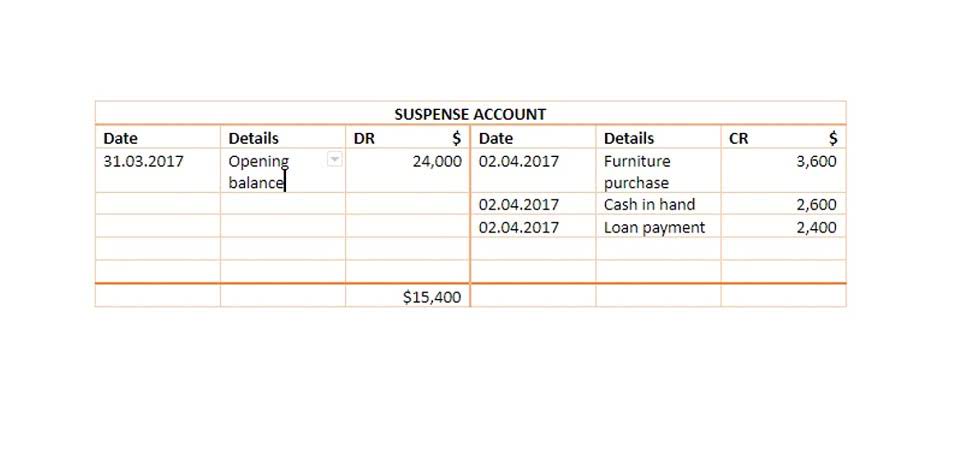
You can alter your price methods from here, as well as your marketing and purchasing, plans. A bookkeeper ensures that your financial records are up to date, that transactions are correctly categorised, and that financial reports are sent on schedule. You need a good structure to manage your money, whether you’re selling goods through an eCommerce website or not. Here are some of the essential benefits of developing sound accounting procedures continuously. Some popular options include QuickBooks, Xero, FreshBooks and Zoho Books, among others. You can read more about our ratings for various business accounting software here.
- Ecommerce businesses operate everywhere all at once, creating some unique challenges for products and customers, especially when it comes to accounting and keeping the books.
- One of the most common mistakes that we see eCommerce companies make is hiring accountants and bookkeepers too late.
- With efficient bookkeeping, small business owners can identify tax deductions or apply for a business loan.
- For example, here is a detailed guide for how to sync Stripe with Xero.
- The direct expense that retail organisations, especially those that operate online, incur to sell goods is known as the COGS, or Cost of Goods Sold.
When you understand the basics of accounting, it can help you have confidence in your finances, stay compliant at tax time, and avoid unnecessary cash flow challenges. Depending upon the size and complexity of your e-commerce business, you might choose to do periodic inventory annually, quarterly, or monthly. Non-operating income reflects money made through means not directly linked to your business activities. To use the above example of a clothing retail store, your non-operating income might include property sales, equipment sales, or investment returns. Before you start doing the math to figure out your revenue and costs, it’s a good idea to make sure you understand the basics.
What two aspects of an ecommerce business should the bookkeeping focus on?
For any entrepreneur, starting an eCommerce marketplace is an exhilarating endeavor. Kelly Main is staff writer at Forbes Advisor, specializing in testing and reviewing marketing software with a focus on CRM solutions, payment processing solutions, and web design software. Before https://www.bookstime.com/ joining the team, she was a content producer at Fit Small Business where she served as an editor and strategist covering small business marketing content. She is a former Google Tech Entrepreneur and holds an MSc in international marketing from Edinburgh Napier University.

Working with a professional accountant or using specialized accounting software is recommended to ensure accuracy and efficiency. You’ll likely be obligated to collect sales ecommerce bookkeeping tax or pay income tax on your profits depending on your area and the things you sell. Speak with a tax expert to ascertain your tax requirements and save money accordingly.
Weekly bookkeeping tasks
The beauty of selling online is that you can sell on multiple sales platforms for relatively little additional costs compared to opening up multiple physical stores. However, when you factor in all the different ways customers can pay for their goods online, you also need to factor in the merchant fees for different payment gateways. And, the fact that payments are coming through from a variety of sources. Therefore, it’s essential you work to create a unified system with plenty of automation. Without frequent bank account reconciliations, it can be very difficult to spot errors in your records. And if you do spot errors down the line, it can be more difficult still to identify where, when, and why the error was made.
Be sure to check out our great value plans to see what Link My Books is capable of. However, there’s always the possibility of mistakes being made when you take on too much yourself. As your business grows, don’t be afraid to outsource some tasks to professionals. If you’re a Lone Ranger just starting up, it can be tempting to lump all your finances together. However, it’s advised to keep your personal and business finances separate from the beginning.
Weekly, monthly, and quarterly bookkeeping tasks
The accrual method is no doubt more complex than the cash basis method. However, it does give a more accurate view of a company’s operations and success. Equally, when you pay expenses such as shipping fees or sales tax, you record the actual amount that has been paid rather than the amount you expect to pay.
- Accounting rules and tax regulations differ by country and state, so staying up to date is crucial to your success.
- It may also refer to the many recording methods that companies may employ.
- Understanding ecommerce bookkeeping is crucial for your business growth and success.
- That being said, the precise steps you take to categorise your transactions will depend on your software.
This way, you’re most likely to choose the right accounting system to support long-term success. Investing time and resources in establishing your financial processes can pay off by driving growth, mitigating risks, and achieving financial stability. Another mistake is neglecting to reconcile bank statements regularly. This can lead to discrepancies between your books and actual cash flow, making it difficult to identify errors or fraudulent activity. By avoiding these mistakes and implementing proper bookkeeping practices, you can ensure the financial health and success of your ecommerce business. Mistakes in ecommerce bookkeeping can have serious consequences for your business.
As you record how much of your inventory has been sold, you must calculate the price each item sold for to keep proper count. For example, you need to note that you sold “x” number of sweatshirts at “y” price per sweatshirt. Managing your eCommerce books becomes easier once you and your bookkeeper have the right tech stack in place and stick to a solid process.

Leave a Reply